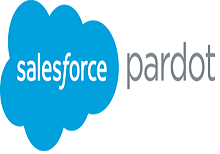Top Lead Management Softwares
Lead Management software plays a crucial role in streamlining the process of capturing, tracking, and managing leads from various sources. This type of software helps businesses automate tasks such as data entry, lead scoring, and distribution. By organizing and prioritizing leads, sales teams can focus on nurturing the most promising prospects, ensuring higher conversion rates. Lead Management so... Read More
159 companies found
Product Description
HubSpot is a software platform designed to help businesses grow by providing a comprehensive suite of tools to handle everything from marketing and sales to customer service. What makes HubSpot unique is its ease of use and the way it integrates all aspects of customer relationship management (CRM) into one seamless experience. Looking to boost your marketing efforts? HubSpot offers email marketi... Read More
Users
- • No Data
Industries
- • No Data
Market Segment
- • No Data
Product Description
Pardot is a tool designed to help businesses with their marketing activities, specifically focusing on B2B (business-to-business) marketing automation. If you work in sales or marketing, you’ll find that Pardot simplifies tasks like email campaigns, landing pages, and lead scoring, making your job much easier. The primary goal of Pardot is to streamline the way a business interacts with potential... Read More
Users
- • No Data
Industries
- • No Data
Market Segment
- • No Data
Product Description
Velocify is a software solution designed specifically for sales teams looking to improve their productivity and efficiency. It helps streamline the entire sales process, making it easier for your team to manage leads, track progress, and ultimately close more deals. By organizing and prioritizing tasks, Velocify ensures that your salespeople are always working on the most important activities. On... Read More
Users
- • No Data
Industries
- • No Data
Market Segment
- • No Data
LeadGenius
Product Description
LeadGenius is a smart tool designed for businesses looking to improve their lead generation and sales processes. It takes away much of the hassle of finding and managing business leads, allowing your team to focus more on closing deals rather than searching for prospects. What sets LeadGenius apart is its ability to deliver high-quality leads that match your specific criteria. This isn't just abo... Read More
Users
- • No Data
Industries
- • No Data
Market Segment
- • No Data
Product Description
""" Sparkroom is an intuitive software designed to help businesses track and manage leads more effectively. If you're tired of sifting through unorganized customer data or missing out on potential sales opportunities, Sparkroom can streamline that for you. It centralizes your lead information, making it easier to see where each prospect is in your sales process. With Sparkroom, businesses can mon... Read More
Users
- • No Data
Industries
- • No Data
Market Segment
- • No Data
Product Description
LeanData is a tool designed to make the lives of B2B companies easier by helping them manage their sales leads more efficiently. If your business deals with a high volume of leads and you're finding it challenging to route these to the right salespeople or teams, LeanData has the solution. It organizes and directs your leads, ensuring that the right opportunities reach the right people quickly. P... Read More
Users
- • No Data
Industries
- • No Data
Market Segment
- • No Data
Follow Up Boss
Product Description
Follow Up Boss is a straightforward tool designed to help real estate teams stay on top of their leads and maximize their communication efforts. Think of it as a central hub where all your client interactions come together. Whether it's emails, phone calls, or text messages, all your communications are organized in one place, making it easier to manage and follow up with potential buyers and selle... Read More
Users
- • No Data
Industries
- • No Data
Market Segment
- • No Data
Product Description
Lead411 is a software platform designed to help businesses find and connect with potential customers. If you’re in sales or marketing, Lead411 can make your job a lot easier by providing accurate and up-to-date contact information for millions of businesses and individuals. This means you spend less time searching for leads and more time reaching out to them. One of the standout features of Lead4... Read More
Users
- • No Data
Industries
- • No Data
Market Segment
- • No Data
Product Description
LeadsRx is a marketing attribution software designed to help businesses understand the customer journey and measure the effectiveness of their marketing campaigns. With LeadsRx, companies can gather data on how various marketing efforts contribute to sales and conversions, providing a clearer picture of what works and what doesn’t. The software integrates with a variety of marketing channels, suc... Read More
Users
- • No Data
Industries
- • No Data
Market Segment
- • No Data
PipelineDeals
Product Description
PipelineDeals is a customer relationship management (CRM) software designed for sales teams looking to organize their efforts and improve their sales processes. It provides a clear and user-friendly interface that helps you manage your contacts, track your interactions, and monitor the progress of your deals. One of the standout features of PipelineDeals is its focus on simplicity and ease of use... Read More
Users
- • No Data
Industries
- • No Data
Market Segment
- • No Data
What is Lead Management software and how does it work?
Understanding Lead Management Software
Lead Management software is a crucial tool for businesses aiming to streamline the process of acquiring, managing, and nurturing leads. This software helps in the systematic organization and tracking of potential customers, ensuring an effective sales process. By centralizing data, it provides insightful analytics and a structured approach to handle leads from the very first interaction through to conversion.
The Functionality of Lead Management Software
The operation of Lead Management software encompasses several stages:
-
Lead Capture: This is often the first step in the lead management process. The software allows businesses to capture leads through various channels such as email, social media, websites, or direct outreach. Integration with these platforms ensures no lead falls through the cracks.
-
Lead Tracking: Once captured, leads need to be tracked throughout the sales pipeline. Lead Management software provides tools to monitor lead activity and interaction history. This creates a comprehensive profile that sales teams can use to tailor their approach.
-
Lead Scoring: Not all leads are created equal. Lead Management software uses scoring mechanisms to prioritize leads based on their likelihood to convert. This scoring is often determined by interaction patterns, engagement levels, and demographic information.
-
Lead Distribution: To ensure that the right leads reach the right salespeople at the right time, Lead Management software automates the distribution process. This reduces response time and ensures that sales teams are working with leads that match their expertise and availability.
-
Lead Nurturing: Many leads require nurturing before they are ready to convert. The software aids in developing personalized communication strategies, often through automated email campaigns. This constant engagement keeps leads warm and moves them gradually towards conversion.
-
Analytics and Reporting: A significant aspect of Lead Management software is its analytics capabilities. By providing detailed reports on lead sources, conversion rates, and campaign performance, businesses can refine their strategies and focus on high-value leads.
-
Integration with CRM: While Lead Management software can function as a standalone tool, seamless integration with existing CRM systems is vital. This ensures that lead data is synchronized across platforms, enabling a unified view of customer interactions from lead to customer conversion.
Benefits of Using Lead Management Software
-
Efficiency: The automation of routine tasks frees up the sales team to focus on more strategic aspects of the sales process.
-
Visibility: Offers thorough insights into the sales pipeline, helping teams forecast and allocate resources more effectively.
-
Enhanced Communication: Facilitates consistent, personalized communication with leads, fostering stronger relationships and increasing the likelihood of conversion.
Lead Management software is a transformative tool in the realm of sales and marketing. By improving lead handling processes, businesses can achieve higher conversion rates, cultivate lasting customer relationships, and ultimately, drive revenue growth.
Why is Lead Management software important for businesses?
Streamline Lead Acquisition and Organization
Lead Management software is instrumental in the efficient acquisition and organization of leads. Businesses often engage various channels to attract potential customers, such as social media, email marketing, and events. Without an organized system, these leads may become dispersed, leading to missed opportunities. Lead Management software centralizes data collection, ensuring that all potential leads are captured effectively and stored in one place. This centralized system aids businesses in maintaining an organized database, making it easier to access and manage leads.
Enhance Lead Qualification
The process of qualifying leads is crucial for converting prospects into customers. Lead Management software aids in scoring and prioritizing leads based on pre-defined criteria such as fit, interest, and engagement level. By automating lead qualification, businesses can focus their resources on high-potential leads, improving conversion rates. This ensures that time and energy are spent on prospects who are more likely to result in a sale, making the sales process more efficient.
Improve Communication and Nurturing
Lead Management software facilitates improved communication and nurturing by enabling personalized and timely interactions. Engagement can be tailored through automated emails, targeted content, and follow-ups, which are essential in guiding leads through the sales funnel. By nurturing leads effectively, businesses can build stronger relationships and keep potential customers engaged. This ongoing communication ensures that prospects are consistently engaged and informed, increasing the likelihood of conversion.
Foster Collaboration Among Teams
For many businesses, the sales and marketing teams must work cohesively to achieve common goals. Lead Management software supports this collaboration by providing a shared platform where both teams can access, update, and track lead information. This transparency ensures that both teams are aligned and can strategize effectively to drive lead conversion. Clear visibility into lead status helps teams coordinate efforts and avoid duplicating tasks.
Analyze and Optimize Sales Processes
By tracking interactions and outcomes, Lead Management software enables businesses to analyze their sales processes. With detailed insights, businesses can identify successful strategies and areas for improvement. This data-driven approach allows companies to optimize their lead management and sales process continually. By understanding what works and what doesn't, organizations can make informed decisions to enhance their sales pipeline.
Increase Efficiency and Productivity
The automation capabilities of Lead Management software save time and reduce manual workload for sales and marketing teams. Routine tasks, like data entry, follow-ups, and reporting, are automated, allowing team members to focus on strategic activities that drive growth. This increased efficiency leads to higher productivity and enables businesses to scale their operations without proportionally increasing resource investment.
Maintain Compliance and Security
Managing personal data responsibly is critical in today’s regulatory landscape. Lead Management software helps businesses ensure compliance with data protection regulations by providing tools for secure data handling and storage. This reduces the risk of data breaches and legal penalties, safeguarding both the business and its customers.
In summary, Lead Management software plays a crucial role in streamlining lead activities, qualifying prospects, enhancing team collaboration, and optimizing the sales process. It is an invaluable tool for any business looking to improve efficiency and increase revenue opportunities.
What features should you look for in Lead Management software?
When selecting Lead Management software, various features are critical to ensure effective lead handling and conversion. The right tools can enhance productivity, streamline processes, and boost sales.
Lead Capture
Lead Management software should offer robust lead capture capabilities. Integrate with various platforms like websites, emails, social media, and landing pages to gather leads effortlessly. Automation tools for capturing leads in real-time ensure all potential leads are recorded promptly.
Lead Scoring
Lead scoring allows users to prioritize leads by assigning values based on behavior and engagement. Effective Lead Management software should provide customizable lead scoring systems, helping sales teams identify the most promising prospects and allocate resources efficiently.
Lead Distribution
Efficient lead distribution ensures that leads are assigned to the appropriate sales representatives. Look for Lead Management software with features that allow automatic distribution based on territory, expertise, or availability, reducing response time and enhancing lead nurturing.
Lead Nurturing
Lead nurturing is vital for building relationships with leads. Software should offer automated, personalized communication features that aid in developing leads through targeted content, helping move them through the sales funnel. This can include email marketing and automated follow-up reminders.
Analytics and Reporting
Analytics and reporting functionalities provide insights into lead activity and sales metrics. Choose Lead Management software with customizable dashboards and detailed reports to assist in evaluating conversion rates and understanding which strategies are effective.
CRM Integration
Lead Management software should seamlessly integrate with existing CRM systems. This integration ensures data consistency and enhances the ability of sales teams to access detailed customer profiles, improving the chances of conversion by understanding previous interactions and preferences.
Customization
Every business has unique needs. Look for Lead Management software that provides customization options, whether for lead capture forms, lead stages, or reporting dashboards, to tailor processes according to specific business requirements.
Mobile Access
Sales teams often work on the go. Mobile access to Lead Management software enables teams to update information in real-time, access lead data, and perform follow-ups seamlessly, maintaining productivity outside the office.
Data Security
Handling leads involves dealing with sensitive information. Prioritize Lead Management software that offers robust data security features, such as data encryption and compliance with regulations like GDPR, to safeguard customer data.
Workflow Automation
Automating repetitive tasks can save time and reduce errors. Lead Management software should include workflow automation for processes like sending emails, scheduling follow-ups, and updating databases. This allows the sales team to focus on more strategic tasks.
Multichannel Communication
Effective communication across various channels is necessary for reaching leads efficiently. The software should support multichannel communication, enabling interaction through email, chat, phone, and social media, ensuring leads are engaged through their preferred platforms.
Selecting Lead Management software with the right features can empower sales teams to optimize their strategies and improve the lead conversion process. Look for diverse functionalities such as lead capturing, scoring, distribution, and analytics in software to meet your business needs comprehensively.
How does Lead Management software help in increasing sales?
Lead Management software is a vital tool for businesses aiming to streamline their sales processes and enhance customer conversion rates. This software assists in increasing sales through various methods.
Efficient Lead Tracking
Lead Management software provides a structured way to track potential customers. By capturing leads from multiple sources such as websites, social media, and emails, businesses can ensure no potential customer goes unnoticed. This efficient tracking enables sales teams to prioritize their efforts on leads that are more likely to convert, saving time and boosting sales.
Lead Qualification and Scoring
A key function of Lead Management software is to qualify and score leads. By using criteria such as demographic information, engagement level, and behavior patterns, the software assigns scores to each lead. High-scoring leads indicate a higher likelihood of conversion. This scoring system allows sales teams to focus on leads with better chances of becoming paying customers, thus increasing the overall sales success rate.
Improved Communication
Lead Management software facilitates seamless communication between sales teams and potential customers. By providing integrated communication tools such as email templates, chat options, and call functions, the software ensures that all interactions are timely and relevant. Consistent and well-organized communication enhances the chances of conversion by keeping prospects engaged throughout the sales process.
Automation of Routine Tasks
Automation plays a crucial role in Lead Management software, helping in increasing sales by freeing up valuable time for sales professionals. Automating routine tasks such as lead data entry, follow-up emails, and reminders enables sales teams to focus on nurturing relationships and closing deals. This focus on high-value activities contributes to a more efficient sales process and, ultimately, increased sales.
Data-Driven Insights
The ability of Lead Management software to provide data-driven insights cannot be understated. By analyzing lead data and producing reports on sales performance, businesses can identify trends and patterns that inform decision-making. These insights enable sales teams to refine their strategies, optimize their approach, and target the right audience, driving more effective sales efforts.
Enhanced Collaboration
Lead Management software encourages collaboration across sales and marketing teams. By centralizing lead information and interactions, the software ensures all team members have access to the same up-to-date data. This shared knowledge facilitates collaborative strategies and consistent messaging, leading to a cohesive approach that increases the likelihood of converting leads into sales.
Customizable Workflow
The customizable workflow in Lead Management software allows businesses to adapt the sales process to their specific needs. By designing workflows that align with business objectives, sales teams can implement strategies tailored to effectively engage their target market. This personalization enhances the sales experience for potential customers, making them more inclined to complete a purchase.
Overall, Lead Management software serves as an integral part of sales operations, aiding businesses in converting more leads into actual sales through improved efficiency, targeted strategies, and enhanced communication.
Can Lead Management Software Integrate with Other Business Tools?
Lead Management software is crucial for efficiently handling potential customer leads. One key advantage of this software is its ability to integrate with various other business tools. Integrations bridge the gap between different systems, enabling data and processes to flow seamlessly across platforms.
CRM Systems
Lead Management software often integrates with Customer Relationship Management (CRM) systems. This integration allows businesses to streamline their sales processes by automatically updating lead data from lead management to CRM systems. It ensures both platforms have consistent information, which aids in tracking interactions and nurturing leads effectively.
Email Marketing Tools
Another common integration is with email marketing tools. By connecting Lead Management software with email platforms, businesses can automate targeted email campaigns. This integration allows for personalizing communication based on where leads stand in the sales funnel, improving engagement rates and conversion potential.
Marketing Automation Platforms
Integration with marketing automation platforms enriches the capabilities of Lead Management software. This connection enables the automated nurturing of leads through strategic campaigns. It facilitates segmenting leads, deploying drip campaigns, and scoring leads based on their interactions with marketing materials. This strategic flow minimizes manual effort while maximizing conversion likelihood.
Sales Tools
Integrating with sales tools is also common for Lead Management software. Sales teams benefit from a consolidated view of lead data, which aids in tailoring sales strategies. By syncing with sales tools, businesses ensure that lead information, including contact details and previous interactions, is available in real-time to sales executives.
Customer Support Systems
Some Lead Management software systems can integrate with customer support platforms. This integration ensures leads receive timely and informed assistance, which can enhance the customer experience. When potential customers have inquiries, the support team can access relevant lead data to provide personalized support and resolve questions efficiently.
Data Analytics Platforms
Integration with data analytics platforms can enhance how lead data is analyzed and utilized. By connecting Lead Management software with analytics tools, businesses can gain deeper insights into lead behavior and sales trends. These insights help in making data-driven decisions and optimizing marketing and sales strategies.
Social Media Platforms
Lead Management software may also integrate with social media platforms. This integration allows businesses to capture and manage leads generated through social media interactions. It provides a structured approach to engage with leads from social networks, tapping into a broader audience base.
Tools for Collaboration
Finally, Lead Management software might integrate with collaboration tools. By doing so, teams across different departments can access and interact with lead data through platforms designed for teamwork. These integrations ensure that marketing, sales, and support teams work in tandem, promoting efficiency and consistency in handling leads.
Overall, Lead Management software integration with other business tools is vital for maintaining data integrity, streamlining operations, and enhancing inter-departmental collaboration. Its ability to work alongside various platforms ensures holistic management of leads throughout their journey, from initial interest to conversion and beyond.
What are the benefits of using Lead Management software for small businesses?
Efficient Lead Tracking
Lead Management software allows small businesses to track potential customers more efficiently. By automating the process of capturing, tracking, and managing leads, businesses can streamline their workflow, ensuring no opportunity is missed. This software provides a centralized system where all lead information is stored, making it easily accessible to team members for follow-up and nurturing.
Improved Customer Insights
Lead Management software offers small businesses valuable customer insights. Through analytics and reporting tools, businesses can gain a deeper understanding of customer behavior and preferences. This knowledge enables more tailored marketing strategies, improving lead conversion rates and optimizing the overall sales process.
Enhanced Team Collaboration
For small businesses, team collaboration is crucial. Lead Management software fosters a collaborative environment by giving all team members access to up-to-date lead information. With shared access, sales and marketing teams can synchronize their efforts, ensuring consistent and effective communication with prospects.
Automation of Lead Nurturing
Small businesses benefit from automating lead nurturing processes using Lead Management software. Automation tools allow for personalized, timely communication with leads without constant manual intervention. By setting up automated email campaigns or follow-ups, businesses can effectively nurture leads throughout the sales funnel.
Increased Efficiency and Productivity
Utilizing Lead Management software boosts efficiency and productivity within small businesses. By reducing the time spent on manual data entry and follow-up processes, team members can focus on engaging and closing more leads. The software also helps prioritize leads based on potential, ensuring that efforts are concentrated on prospects most likely to convert.
Organized Data Management
Lead Management software aids small businesses in maintaining organized data. By consolidating information into a single platform, businesses reduce the risk of data mismanagement and errors. This organized approach ensures quick access to vital lead details, improving the ease and speed of decision-making.
Better Lead Segmentation
The ability to segment leads is another benefit for small businesses using Lead Management software. By categorizing leads based on specific criteria or behaviors, businesses can tailor their marketing efforts more effectively. This segmentation helps in delivering targeted messages that resonate with different lead segments, enhancing the likelihood of conversion.
Scalability for Growing Businesses
Lead Management software provides scalability for small businesses aiming for growth. As a company expands, the software can handle an increased volume of leads without compromising efficiency. Small businesses can continue their expansion efforts knowing their lead management processes are supported by robust, adaptable software.
Reduced Costs
By automating and streamlining processes, small businesses can reduce costs associated with lead management. Lead Management software eliminates the need for excessive manual labor, cutting down on labor costs. Additionally, by improving lead conversion rates through targeted and efficient campaigns, businesses can achieve better ROI on their marketing efforts.
Lead Management software becomes invaluable for small businesses by enhancing their ability to manage and convert leads effectively. Through features designed to streamline operations, the software directly impacts productivity, efficiency, and profitability.
How can Lead Management software improve customer relationships?
Understanding and Tracking Leads
Lead Management software allows businesses to track every interaction with potential customers. It helps in gathering essential data, which provides insights into customer preferences and behaviors. By understanding a lead’s journey and interactions, businesses can tailor their communications and engagements. This level of personalization fosters stronger customer relationships as it shows customers that the business is attentive to their needs.
Enhanced Communication
Effective communication is vital for building and maintaining customer relationships. Lead Management software provides tools to streamline communication processes. Automation features ensure timely follow-ups, nurturing leads with relevant information and offers. When leads receive prompt and thoughtful responses, they are more likely to engage positively, enhancing the trust and connection between the business and the customer.
Streamlining Workflows
Lead Management software simplifies workflow by automating routine tasks such as data entry and scheduling follow-ups. This efficiency allows sales teams to focus more on personalized engagement with leads rather than on administrative tasks. As a result, the sales team can dedicate more time to understanding customer needs and solving their problems, which in turn nurtures stronger relationships.
Segmentation and Targeting
With Lead Management software, businesses can segment leads based on various criteria such as behavior, demographics, or engagement level. Segmentation allows businesses to create targeted communication strategies for different lead groups. This targeted communication ensures that leads receive relevant information, increasing the likelihood of developing a positive and long-term connection, which is essential for enhancing customer relationships.
Improving Response Times
Lead Management software often includes features that boost response times to customer inquiries and requests. Quick responses demonstrate reliability and professionalism, key elements in building trust with leads. When leads feel valued and heard, they are more likely to form a positive view of the company ahead of becoming customers.
Gathering Feedback
Feedback is crucial for understanding customer expectations and improving services. Lead Management software often includes tools to collect and analyze feedback from leads. These insights can inform business strategies and service improvements, ensuring the company meets customer needs effectively. By continuously adapting to feedback, businesses show their commitment to customer satisfaction, which positively impacts relationships.
Predicting Customer Needs
Lead Management software collects and analyzes data, helping businesses predict customer needs and preferences. By anticipating customer needs, companies can offer solutions proactively, enhancing customer satisfaction. Predictive insights allow for more strategic planning and offering value to customers throughout their purchase journey, which bolsters customer loyalty and trust.
Integration with Other Tools
Integration capabilities of Lead Management software enable seamless data sharing with CRM systems and marketing tools. This integration ensures a cohesive strategy across different teams, which can deliver a consistent and unified experience for the customer. Such an experience is likely to improve customer satisfaction and strengthen relationships.
By leveraging these aspects of Lead Management software, businesses can significantly improve their customer relationships. Personalized engagement, improved communication strategies, and efficient lead tracking all contribute to forming strong, long-lasting connections with customers.









